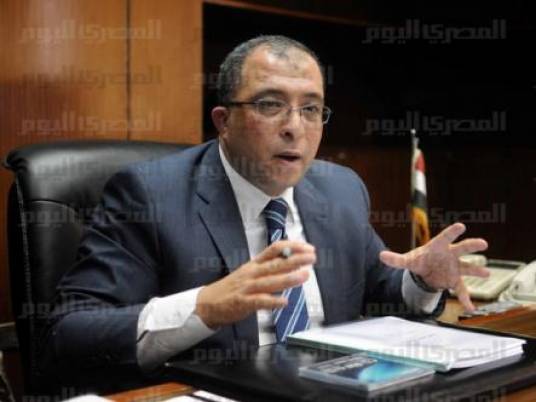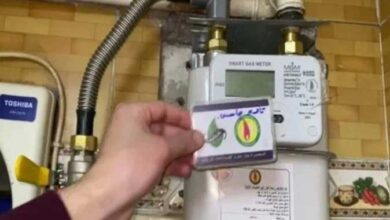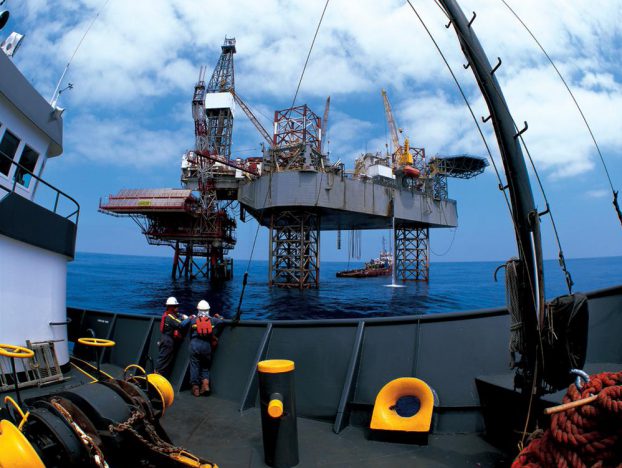
Egypt plans to boost electricity prices for the richest 20 percent of its citizens before the presidential elections at the end of May, as the country has 'no time to waste' in starting reforms, the planning minister said.
Ashraf al-Araby, Egypt's minister of planning and international cooperation, this week said the decision on raising gasoline prices will be taken "very soon," but declined to provide further details.
Al-Araby's sense of urgency suggested that for the first time in years, Egypt was on the same page with the International Monetary Fund, which has long urged the country to push through structural reforms, such as gradually reducing costly subsidies.
After the 2011 uprising that toppled Hosni Mubarak, already high energy subsidy costs ballooned to a fifth of state spending as the Egyptian pound plunged, making imports more expensive.
Egypt's finance minister said last month that spending on energy subsidies next year would be 10-12 percent above the 130 billion Egyptian pounds ($19 billion) budgeted for, unless immediate reforms are made.
"This energy subsidy system is unsustainable; we cannot afford (for) this to continue," al-Araby said in an interview on the sidelines of the IMF-World Bank meetings in Washington.
"We don't have time to waste. … It's better for Egypt to start some of these measures at least before the presidential election, just to pave the way for the coming president, to make his life easier," he said.
Al-Araby declined to specify by how much electricity prices would rise, saying the issue was still under negotiation. He also emphasized the price hikes would be gradual, and could take three to five years to implement in full.
He said the government had agreed to allocate at least 15 percent of its subsidy savings to social programs and the poor.
"This will benefit the poor, because we will take this from the rich and reallocate it to the poor and social spending," he said. "So I believe we have a good story to tell to the Egyptian people."
Egypt sells many energy products at prices substantially below the cost of production. But one cash-strapped government after another has resisted attacking the wasteful system, fearful that raising fuel prices could spark unrest.
The previous government of Mohamed Morsy was already trying to cut spending to contain a ballooning budget deficit, and was in negotiations with the IMF for a loan program that would have required Egypt to raise taxes and cut subsidies. But negotiations were never completed before Morssy was toppled last July.
Since then, Egypt has relied on billions of dollars in aid from the Gulf Arab states of Saudi Arabia, United Arab Emirates and Kuwait.
"What I think Egypt should do is use continued Gulf support to create a breathing space, so that reform can be gradual, and you're not forced into abrupt reforms by running out of money," Christopher Jarvis, the IMF's mission chief for Egypt, said in an earlier briefing with reporters.
"I think the sooner reform is started, the better. But I see it as a process that will take several years," he added.
Al-Arabi said Egypt plans to raise gas prices "very soon," declining to elaborate further.
He said the government will make a bigger push to distribute smart cards for fuel, part of a program to cut costs for the heavily subsidized commodity by reducing so-called "leakages," or smuggling and selling of gasoline on the black market.
The government in October said it would print 5 million smart cards to give to motorists, who would use them to buy gasoline and diesel at fuel stations, allowing the government to track and monitor deliveries.
A smart card company contracted for the project alleged earlier this month that the Egyptian government was taking too long to roll out the system.
Al-Araby said only 2 million or so cards have been distributed so far, and the government plans to distribute the remaining cards in the next two to three months.
"Once we have this smart card system, we will save at least 15 to 20 percent on leakages in the system," he said.
Egypt on Sunday also said it plans to introduce a smart card system for subsidized bread by July.
Egyptians will vote on May 26-27 in a presidential election where Abdel Fattah al-Sisi, the former army chief who deposed Morsi, is expected to win easily.
Al-Araby said any of Egypt's presidential candidates would support moving forward on subsidy reforms and other changes to the economy.
"The Egyptian challenges are well known to everybody," he said. "We keep talking about these same problems, at least in the last 30 or 40 years. … It's time to reform."




